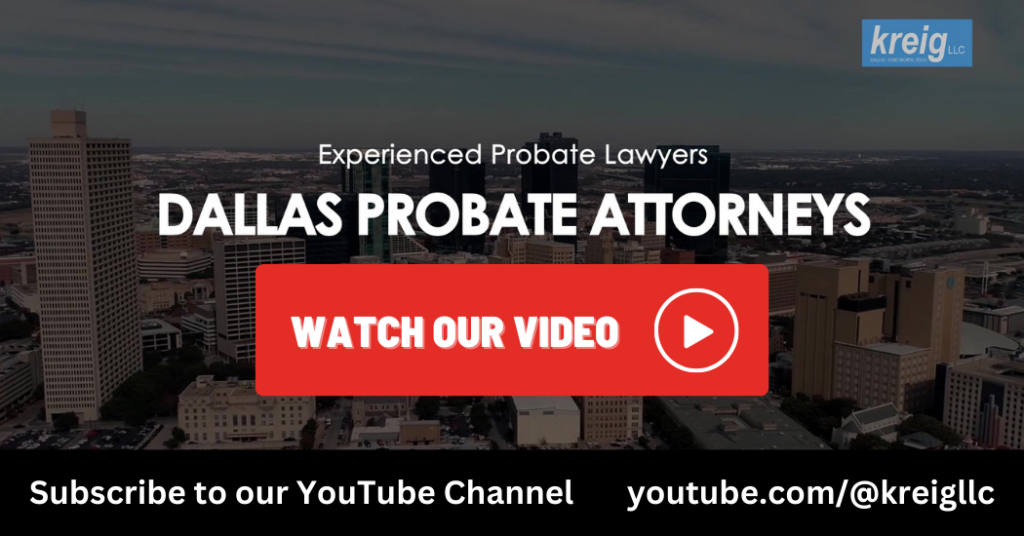What happens if someone owns real estate that is subject to a mortgage and the mortgage goes unpaid because they died?
Can the bank foreclose on the property? If so, what steps should the surviving family members take to protect the property?
The recent Midfirst Bank v. Robbinson, No. 3:22-CV-0333-M-BH (N.D. Tex. 2023) case provides an opportunity to consider these questions.
Facts & Procedural History
The case involves the attempted foreclosure by a bank for property owned by someone who died. No probate proceedings were initiated for her estate.
The decedent was survived by her daughter and granddaughter who were both heirs of the estate under Texas intestacy law.
The daughter and granddaughter did not pay the mortgage when the decedent died. The lender sent the daughter and guardian of the granddaughter notice of the acceleration of the debt. They still did not respond.
As a result, the lender sought a default judgment that they were the beneficiary of the deed of trust and for the foreclosure of the property. The daughter and granddaughter did not respond to the suit, resulting in the court issuing a default judgment.
This is an all too common situation that can be avoided in many cases.
Texas Foreclosure Law
A lender can foreclose on real estate if payments are not made. Lenders will usually use the judicial foreclosure process when the property is owned by a decedent and there is no probate opened.
The lender has the burden to show that there is a debt, the debt created a lien under Texas law, there is a default under the loan documents, and that the parties were properly served notice of default and acceleration. Not only can the lender foreclose, but they can also be awarded costs and interest. This can be quite expensive, which is why avoiding foreclosure is usually advisable.
The lender in this case was able to make these showings by its pleadings and attachments filed into the case. Had the parties responded, this may not have been the case.
Opening a Probate to Delay Foreclosure
When someone dies and there is a possibility of foreclosure on real estate that they own, it is usually advisable to open a probate for the decedent.
When probate is opened, the Texas Estates Code provides that the personal representative is to provide notice to the secured creditor. The secured creditor then has to specify how it wants to treat the debt or, if the secured creditor does not respond, it accepts the default classification.
The default classification only allows the lender to collect against the secured property. They cannot collect against other assets belonging to the decedent. Attempts to collect from other assets can be disputed in the probate court.
Within six months of the date the personal representative is appointed, the personal representative is supposed to bring the mortgage current. Failure to do so can allow the lender to file an application in the probate court to have the property sold.
It should be noted that the opening of the probate administration provides this six-month reprieve that bars a foreclosure action. This time can be used to secure a loan or other funding and even to find a buyer for the property, if needed. This is why it is important to file for probate if there is a possibility of foreclosure.
The Temporary Restraining Order
If a probate has not been opened and a foreclosure is imminent, the would-be personal representative or heirs may want to seek a temporary restraining order or TRO.
The TRO can be used to buy time to figure out who the proper parties are and, if necessary, to open a probate. This procedure is intended to maintain the status quo until the court can fully consider the matter. This is usually two weeks, which may be long enough to file for a temporary probate administration in the probate court.
The temporary probate administration allows for the immediate appointment of an administrator who can defend against foreclosure. It also starts the delay in the foreclosure process which can afford the parties time to work with the lender to find a less drastic remedy.
The Affidavit of Heirship
Another option may be to file an affidavit of heirship (“AOH”) and simply sell the real estate. The AOH can be completed quickly and does not require court approval. This remedy only works if the heirs can find a buyer quickly before the foreclosure sale and there is enough equity in the house to pay off the lender and any late fees and costs. This may even be used to sell the property to a related party, such as a parent or sibling, who can qualify for a mortgage loan. If these circumstances are met, the AOH can provide a quick and inexpensive option to avoid foreclosure and/or buy time to work out other arrangements for the property.
The Takeaway
There are several steps one should take if a loved one dies and they own real estate that is subject to a mortgage. If the mortgage payments are not made, the lender may try to foreclose on the property. The heirs should usually respond by opening probate. If this cannot be done timely, then they may need to pursue a TRO and possibly a temporary administration.
Our Dallas Probate Attorneys provide a full range of probate services to our clients, including helping with the probate process. Probate is what we do. Affordable rates, fixed fees, and payment plans are available. We provide step-by-step instructions, guidance, checklists, and more for completing the probate process.We have years of combined experience we can use to support and guide you with probate and estate matters. Call us today for a FREE attorney consultation.
Disclaimer: The content of this website is for informational purposes only and should not be construed as legal advice. The information presented may not apply to your situation and should not be acted upon without consulting a qualified probate attorney. We encourage you to seek the advice of a competent attorney with any legal questions you may have.
Don't miss out, get a copy today!












